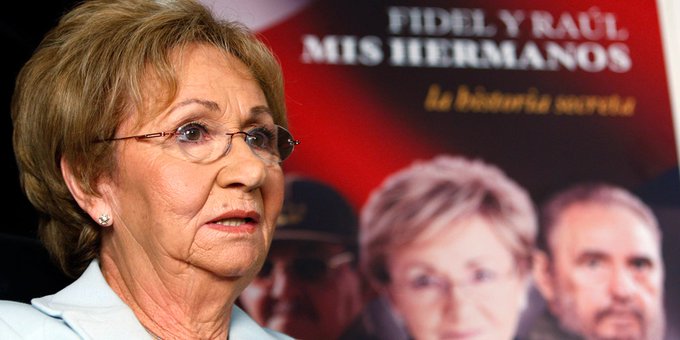Juanita Castro, the sibling of Cuban leaders Fidel and Raúl Castro, who collaborated with the CIA in opposition to their communist regime, passed away at the age of 90 in Miami. Florida had been her residence since she fled the island nearly six decades ago.
Who was Juanita Castro?
Juanita Castro, who passed away, played a significant role in history as the sister of Fidel and Raul Castro, prominent figures in the Cuban Revolution. Born on May 6, 1933, in Birán, Oriente Province, Cuba, Juanita was the only woman among the Castro siblings.
During her early life, Juanita witnessed the social and political upheavals that would shape Cuba’s destiny. Her brothers’ involvement in revolutionary activities against the Batista regime led to Fidel assuming power in 1959, marking the triumph of the Cuban Revolution. As Fidel became the Prime Minister and later the President of Cuba, Juanita’s life took unexpected turns.
Amidst the political shifts, Juanita found herself at odds with the revolutionary government. In 1964, she chose exile and moved to the United States, where she distanced herself from her brothers’ political ideology. Settling in Miami, Florida, Juanita embarked on a new chapter of her life, establishing herself as an author and an advocate for democratic values.
In her memoir, “Fidel and Raul, My Brothers: The Secret History,” published in 2009, Juanita provided insights into the complexities of her family dynamics and the ideological differences that led her to separate from the Cuban government. The book offered a unique perspective on the Castro brothers’ rise to power and the challenges faced by someone intimately connected to them.
Also Read: Who is Dr. Udit Kondal? ‘House Call Doctor Thousand Oaks’ director slammed for anti-semitic comments
Juanita Castro’s passing marked the end of a chapter in Cuban history, reflecting the intricate relationships within the Castro family and the enduring impact of the Cuban Revolution. Her decision to distance herself from her brothers’ political path and her subsequent life in the United States contributed to a nuanced understanding of the human dimensions behind the revolutionary narrative.







